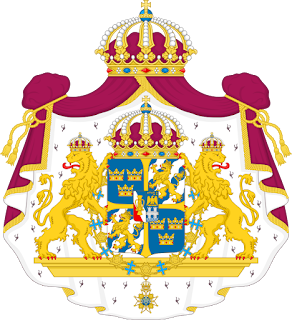
February 2018 marked two hundred years since the House of Bernadotte ascended to the throne of Sweden, and the story of this dynasty's rise is all the more unique as its founder was not of royal birth nor even a Swede. In fact, the first monarch of the House of Bernadotte was an ambitious French soldier who had plenty of luck on his side.
The origins of Sweden's 200-year-old royal house can be traced to the town of Pau in southwestern France, where Jean-Baptiste Jules Bernadotte was born in January 1763, the son of the town's prosecutor. Bernadotte enlisted in the French army and rose through the ranks to become a general.
After Napoleon crowned himself Emperor and established the First French Empire, Bernadotte was appointed a Marshal of the Empire. His success in the victorious Battle of Austerlitz came with a princely reward - the Emperor named Bernadotte Sovereign Prince of Pontecorvo, a small principality Napoleon had created after invading the Italian peninsula and crowning himself King of Italy.
 |
| Jean-Baptiste Bernadotte, later King Carl XIV Johan of Sweden |
Reluctantly, King Charles XIII agreed in 1810 to appoint Marshal Jean-Baptiste Bernadotte as Crown Prince of Sweden. Bernadotte gave up his rights as Sovereign Prince of Pontecorvo and moved his family to Stockholm. His wife, Désirée, was not the least bit impressed with life at the Swedish court and kept herself in southern Europe as often as she could.
Upon the death of Charles XIII, Bernadotte succeeded to the Swedish throne on 5 February 1818 as King Charles XIV Johan of Sweden. What King Charles thought of his position is not always clear; he is reported to have said once "Who would have though that I, who had been a Marshal of France, am now only King of Sweden?" Nevertheless, he reigned until his death at the old age of 81 and was succeeded by his only child, born as Joseph Francois Oscar Bernadotte but crowned as King Oscar I of Sweden. Oscar I married Josephine of Leuchtenberg, a granddaughter of Napoleon's first wife, Josephine de Beauharnais.
From Charles XIV Johan's accession in 1818, the House of Bernadotte ruled over not only Sweden but also Norway in a personal union. The bond between Sweden and Norway was broken in 1905, when the Norwegian parliament voted for independence and invited a Danish prince to become its first independent modern king as Haakon VII (Haakon himself was the son of a Bernadotte princess, Louisa of Sweden).
The monarchs of the House of Bernadotte are:
Carl XIV Johan (Jean-Baptiste Bernadotte)
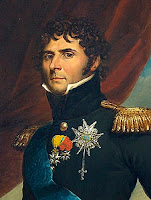
Oscar I (Francois Oscar Bernadotte)

Carl XV

Oscar II
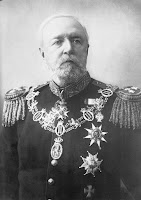
Gustaf V
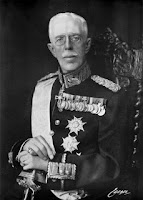
Gustaf VI Adolf
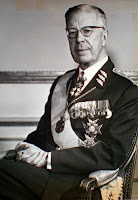
Carl XVI Gustaf

The present king, Carl XVI Gustaf, has been on the throne since 1973. This year, he will become the longest-reigning Swedish monarch in history, surpassing the forty-five year reign of King Magnus IV in the fourteenth century. King Carl XVI Gustaf came to the throne with his monarchical powers restricted considerably, as the Swedish parliament voted during the reign of his grandfather, Gustaf VI Adolf, to reduce the powers of the monarch down to that of a ceremonial figurehead, with virtually no political authority. However, out of respect for the elderly Gustaf VI, it was decided that the monarch's reduced status would not take effect until the reign of his successor.
The House of Bernadotte is set to continue in the next generation with Crown Princess Victoria, the eldest daughter of King Carl XVI Gustaf and his wife, Queen Silvia. In 1980, a new law came into effect that changed the succession to the throne to absolute primogeniture, meaning that the firstborn child of a monarch, regardless of gender, would become heir. The King and Queen already had two children at this point, Victoria and her younger brother, Carl Philip, who had been born as crown prince, but once this law came into effect Victoria usurped Carl Philip, as the second-born child, and became crown princess of Sweden. Second in line to the throne is Victoria's daughter, six-year-old Princess Estelle, followed by her brother, two-year-old Prince Oscar.
 |
| King Carl XVI Gustaf and Queen Silvia of Sweden with their children and grandchildren. |
Comments
Post a Comment